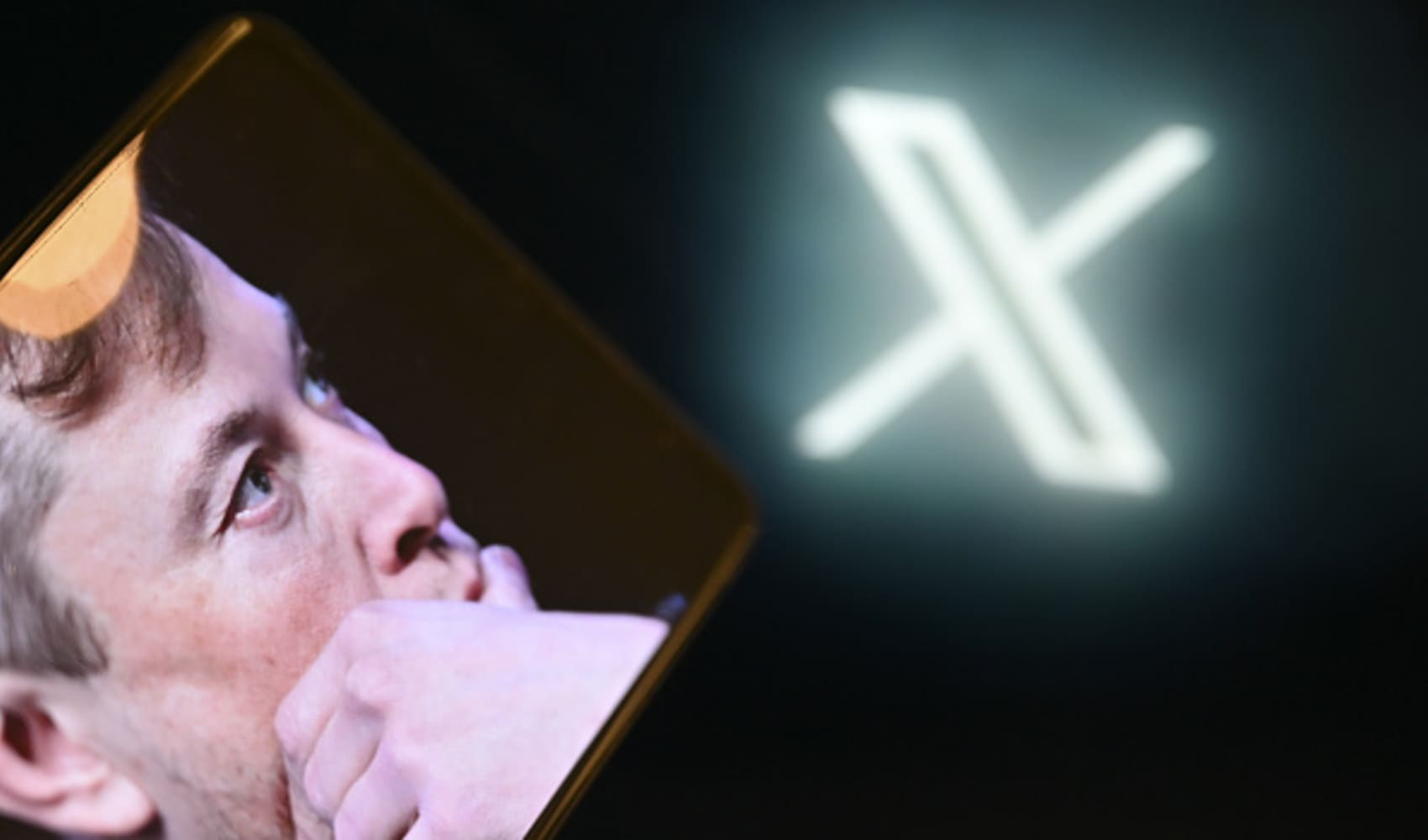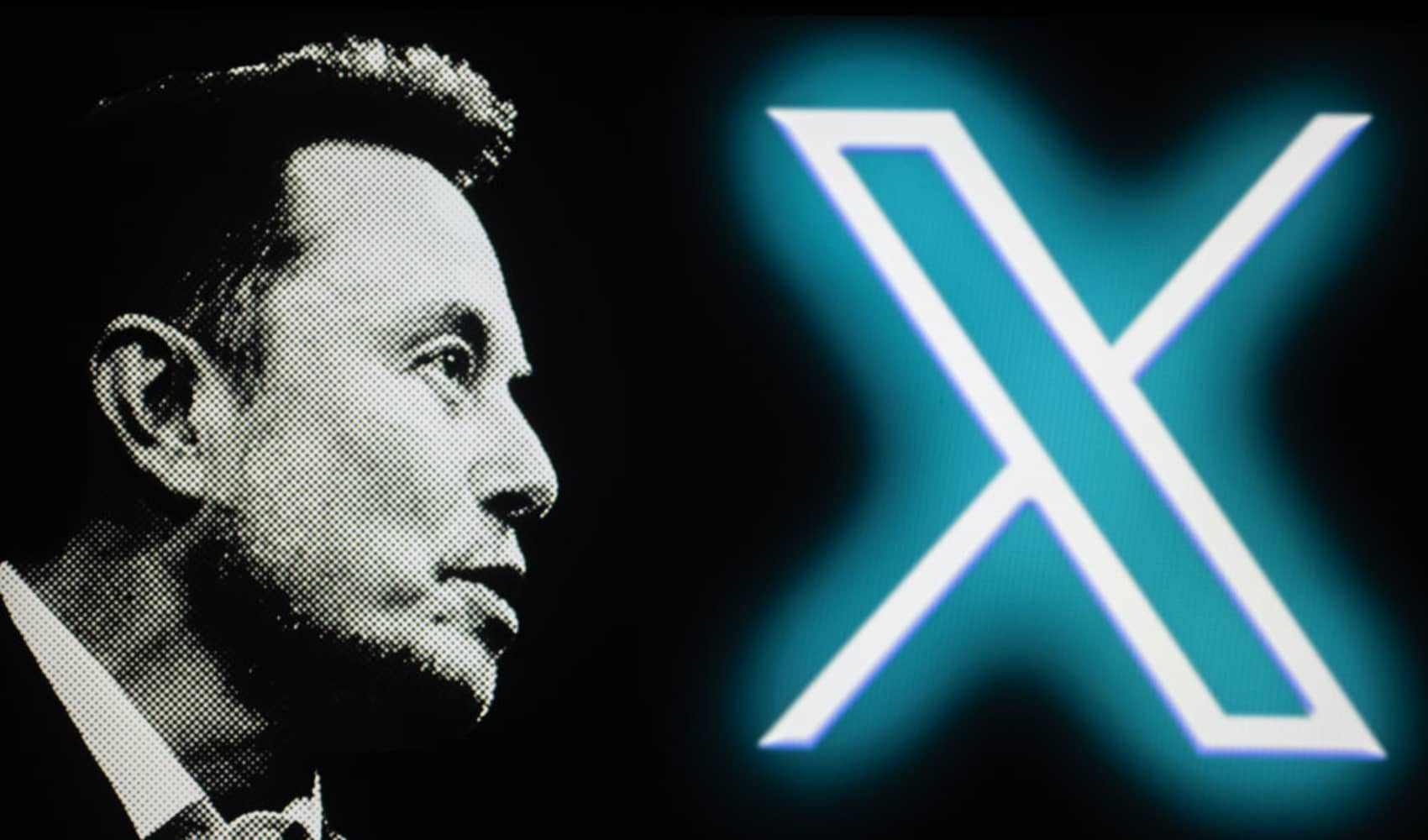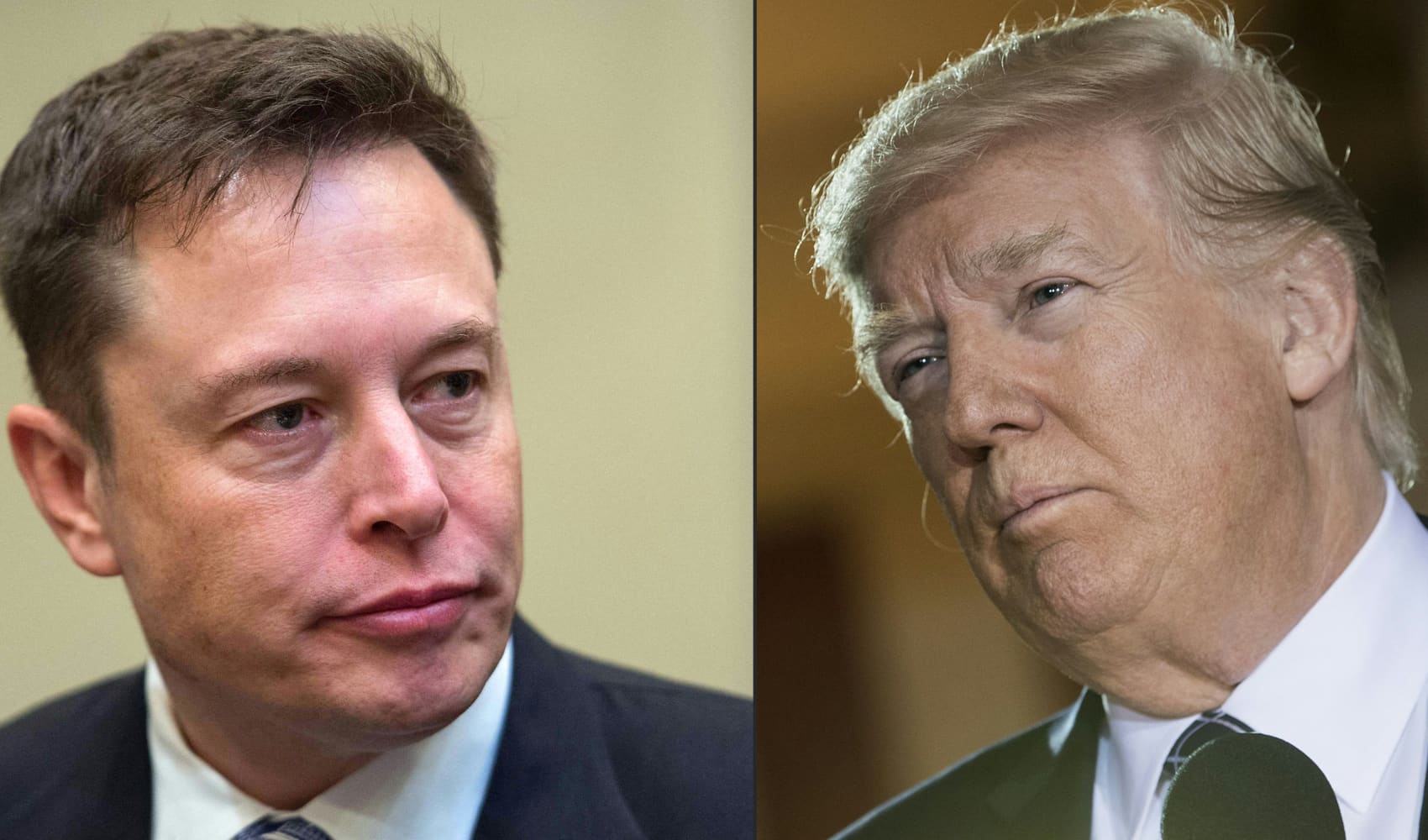
Elon Musk’s X is a thriving hub for Nazi support and propaganda, with paid subscribers sharing speeches by Adolf Hitler or content praising his genocidal regime.
NBC News found that at least 150 paid “Premium” subscriber X accounts and thousands of unpaid accounts have posted or amplified pro-Nazi content on X in recent months, often in apparent violation of X’s rules. The paid accounts posting the content all consistently posted antisemitic or pro-Nazi material. Examples included praise of Nazi soldiers, sharing of Nazi symbols and denials of the Holocaust.
The pro-Nazi content is not confined to the fringes of the platform. During one seven-day period in March, seven of the most widely shared pro-Nazi posts on X accrued 4.5 million views in total. One post with 1.9 million views promoted a false and long-debunked conspiracy theory that 6 million Jews did not die in the Holocaust. More than 5,300 verified and unverified accounts reshared that post, and other popular posts were reshared hundreds of times apiece.
X’s policies ban glorifying violence — a broad prohibition that X has sometimes used to take down pro-Nazi content and accounts. The rules also ban “praising violent entities” and say the platform will apply labels to hate imagery like swastikas. But NBC News found that X does not appear to be enforcing those policies consistently.
The findings are the latest evidence of a flourishing Nazi network on X under Musk’s ownership. Previous investigations by news organizations and anti-hate watchdogs have documented many examples of antisemitism, white supremacy and support for Nazism on X.
NBC News found the Nazi propaganda posts by browsing the platform: scrolling through replies, clicking on user profiles and looking through the engagements on viral posts. NBC News conducted its review during one week in late March. The number of verified subscribers posting pro-Nazi material may be significantly more than 150. When NBC News conducted its review, Premium subscribers had the option to hide their verification check marks from the public.
US & World
The verified users sharing the pro-Nazi content have entered into a mutually beneficial relationship with Musk’s X, paying $8 a month or more for premium services that are available to all premium subscribers. In exchange, they get “prioritization” when they reply to posts and the opportunity to monetize their content through ads, according to the subscription terms.
The result is that X is bringing Nazi sympathizers in from the dark corners of the internet to a massive platform where they can pay to amplify their content. X had 174 million daily active users worldwide on its mobile app in February, according to the research firm Sensor Tower. X claims to have many more than that.
NBC News conducted its research in March, before X implemented a change to provide free premium subscriptions to accounts with more than 2,500 verified followers. That move has made it more difficult to determine who is a paid subscriber.
Get a weekly recap of the latest San Francisco Bay Area housing news. Sign up for NBC Bay Area’s Housing Deconstructed newsletter.
A welcoming social media environment can make Nazi sympathizers feel validated in their views and recruit others to their cause, said Patrick Riccards, executive director of Life After Hate, a Milwaukee-based organization that helps people disengage from violent extremist groups.
“For those who are already driven by hate, it is a big warm hug,” he said.
Online hatred can also contribute to violence offline, he said, citing the racist massacre at a grocery store in Buffalo, New York, where 10 Black people died in 2022. The gunman wrote in a document that he supported neo-Nazism. He later said in court that he “believed what I read online and acted out the hate.”
“They’re wanting to find individuals to take physical action when the time comes,” Riccards said.
In most cases, Nazi material on X is about spreading hate, said Megan Squire, deputy director for data analytics at the Southern Poverty Law Center, an anti-hate group founded in 1971.
“It’s not like historians are on there talking about Hitler’s speeches,” she said.
Squire said that in her research she has found that accounts posting Nazi material are run by “known white supremacist groups that are attempting to normalize their ideas, gain followers and shuffle those followers into platforms” elsewhere online where their organizing work continues.
By failing to act against many pro-Nazi accounts, X continues to earn income from their activity in at least two ways: by collecting monthly subscription fees from those posting pro-Nazi content and by running advertisements on those accounts or adjacent to the pro-Nazi content.
NBC News found ads running on 74 of the 150 premium accounts, either on their profile pages or in the replies below their posts. The advertisers included SiriusXM, The Hollywood Reporter and Cisco subsidiary Splunk. SiriusXM declined to comment. Penske Media, the owner of The Hollywood Reporter, declined to comment. Splunk did not respond to requests for comment sent by email.
In the News
Ads from other companies appeared among the search results for a Holocaust-denial hashtag.
NBC News does not have a comprehensive list of advertisers that use X. Each account on social media sees different ads at different times, so it is unknown how many advertisers’ ads have run next to pro-Nazi content.
Advertisers online generally have limited control over where their ads appear. X says on a website for advertisers that it gives them the ability to target certain demographics, accounts, keywords, phrases, interests, events and locations. Advertisers can also use “negative” targeting, asking X’s ads system not to place ads near certain keywords. The system, however, does not guarantee placement next to or away from any specific post. Other platforms, such as Instagram, have targeting systems of their own.
On a second website for advertisers, X says its rules are meant to ensure brand safety. It says that the rules “are enforced for all people who use X” and that they “set the standard for content and behavior not permitted on the platform.” X specifically notes on the page that its policies include rules that address “violence,” “terrorism/violent extremism” and “hateful conduct.”
X does not disclose publicly which accounts share in ad revenue, and NBC News could not determine how many of the 150 premium subscribers do so.
Monetizing Nazi content contradicts one of Musk’s early pledges after he bought the app, then known as Twitter, in October 2022.
“Negative/hate tweets will be max deboosted & demonetized, so no ads or other revenue to Twitter,” he wrote in a post in November 2022.
Musk also said then that no one has a right to amplification online.
“New Twitter policy is freedom of speech, but not freedom of reach,” he wrote.
NBC News sought comment on its findings from X. A representative for X asked for examples, and NBC News provided 13 examples of accounts posting pro-Nazi content. Hours later, X had put labels on some of the examples, all of which remained online. Representatives for X did not answer written questions or agree to an interview, but they sent a link to a blog post from September that says X has a “zero tolerance approach” to violent speech.
Many of the 150 premium accounts have put links on their X profiles directing people to their websites, books and other media, where they sometimes push Nazi sympathy and antisemitism. One such account, using the name The Impartial Truth, posts recycled and remixed Nazi propaganda content, and its X profile links out to a donation site. The account did not respond to an emailed request for comment.
One of the premium accounts belongs to Stew Peters, a Florida-based host of an internet talk show who has praised Nazi book-burning in 1930s Germany. Last month, a post of his denying the Holocaust went viral on X with 1.9 million views. Peters has more than 574,000 followers on X, where his posts often include antisemitism, and his account links to his website charging $10 a month for videos. In response to a request for comment, Peters said NBC News was using “ad hominem arguments to create narratives out of whole cloth.”
Some of the accounts posting Nazi propaganda are unabashed in their praise of the Nazis. At least two verified X subscribers recently praised Joseph Goebbels, the Nazi propaganda minister. One said it used artificial intelligence to generate fake audio of Goebbels reading his writing aloud, bringing in more than 23,000 views.
X’s policies require a “sensitive media” label for “hateful imagery,” which includes “symbols historically associated with hate groups, e.g., the Nazi swastika.” Musk cited a related “incitement to violence” policy when he suspended the rapper Ye, formerly Kanye West, after Ye praised Hitler in an interview and posted an image resembling a swastika.
Some viral Nazi content stops short of praise and instead drives engagement to accounts with no clear ideology. Two examples came in March from the account @dom_lucre, a conspiracy theorist. It posted two Hitler speeches that together received more than 15 million views. The speeches were translated with artificial intelligence, Lucre said. He, unlike others, included a warning that the speech was graphic and antisemitic, though he did not express disapproval.
“I am simply sharing what is news as I always do,” he wrote in a post. Lucre, who also goes by Dominick McGee, according to his Facebook page, did not respond to an emailed request for comment.
Lucre and other similar posters who stopped short of praising Nazis were not included in the NBC News count of the 150 premium subscribers posting pro-Nazi content. Those 150 accounts were more explicit in their pro-Nazi ideologies.
Squire, of the Southern Poverty Law Center, said the proliferation of pro-Nazi content is the result of multiple decisions by Musk since he bought the platform: cutting content moderators, changing the rules about who got verification, reinstating banned accounts and restricting the data stream that outside watchdogs used to research Twitter.
Many researchers have complained that it is now difficult or impossible to measure the reach of extremism on X because of the new restrictions Musk has imposed.
“It’s safety through obscurity: Make it really hard for people to see the problem, and then you can pretend it doesn’t exist,” Squire said.
Before Musk bought Twitter, it had been working for about five years to crack down on the presence of Nazis. In 2017, after years of complaints by users and advertisers, Twitter said it was banning Nazi swastikas and other hateful imagery from profile photos and that it would kick off users who associate with violent organizations. Opponents of Nazis celebrated the moves as long overdue.
Some prominent X users are unhappy with what they have seen. Christopher Rufo, an activist and senior fellow at the conservative Manhattan Institute, wrote last month that he had seen a rise in “Kanye-style antisemitism.” A representative for Rufo said he was not available for an interview.
Some Nazi supporters have also said they have noticed a rise in sympathetic posts. One account, referring to Hitler as “the Boss,” wrote recently: “I’m seeing the Boss’ speeches and quotes more and more on social media, from people youd never expect.”
Rather than crack down on antisemitic posts, Musk has used his massive platform to promote antisemitic conspiracy theories. Last year, he embraced the concept of the “great replacement,” which says there is a top-down plot to replace the white population with nonwhite people. His posts on the subject drew condemnation from the White House and led to an exodus of advertisers. Following the backlash over his statements, Musk visited Israel and traveled to the former Nazi death camp Auschwitz with conservative commentator Ben Shapiro.
Musk also reinstated the accounts of prominent neo-Nazis Andrew Anglin and Nick Fuentes. Both are now suspended, although videos in which Fuentes questions the Holocaust still spread widely on X.
Last year, the progressive watchdog Media Matters published a report saying Nazi content was running on X alongside advertisements from major corporations. X sued Media Matters, saying its research was flawed because it used an account that, according to the company, was primed to see Nazi material based on the accounts it followed. It also said Media Matters received flawed results because the activity of its researchers was atypical, for example by refreshing a page many times to see which ads appeared. X’s suit is ongoing. In a statement to NBC News at the time, Media Matters President Angelo Carusone called the lawsuit "frivolous" and said the organization "stands behind its reporting and looks forward to winning in court.”
Among the ads running near pro-Nazi content seen by NBC News was one from the FBI seeking tips about hate crimes. The FBI ad appeared among the replies to a post from @AshaLogos, a verified account with more than 54,000 followers that frequently posts antisemitism, including a recent accusation that Jews have a “monopoly” on media.
The FBI did not respond to requests for comment on the ad or its placement or about NBC News’ findings about pro-Nazi propaganda on X.
Hate crime in the U.S. has been surging, with reports jumping 12% in 2021 and 7% in 2022, according to law enforcement reports to the FBI.
Lora Kolodny of CNBC contributed to this article.
This story first appeared on NBCNews.com. More from NBC News:
- Elon Musk will be investigated over fake news and obstruction in Brazil after a Supreme Court order
- Instagram to test blurring nudity in messages to protect teens from sextortion
- Social media features and infinite scrolling are harmful to youth mental health, report says







